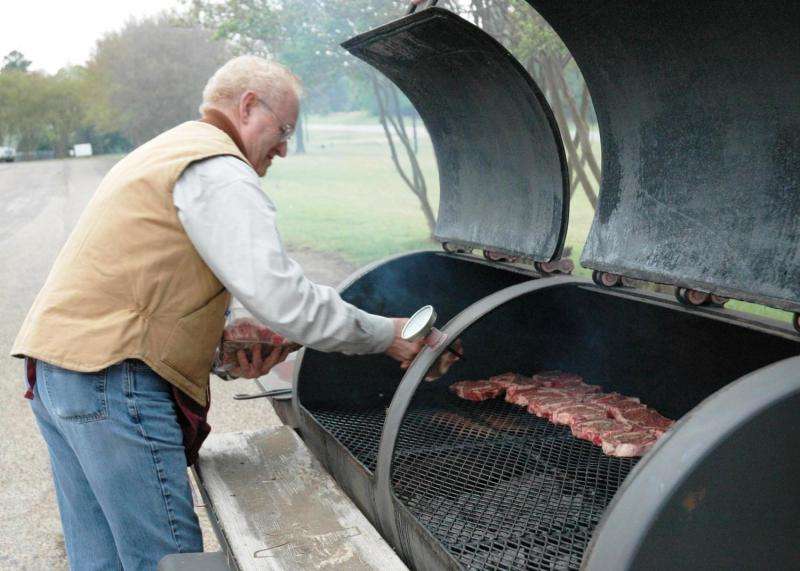Food safety greater concern during summer outings

Ants aren't the only tiny creatures that can ruin a summer outing where food is being served, said a Texas A&M AgriLife Extension Service expert.
"Something that can really spoil a summer picnic or other outing where there's food is foodborne bacteria from improperly handled, prepared or stored foods," said Rebecca Dittmar, AgriLife Extension program specialist for food protection management based in Kerrville.
"Hot temperatures accelerate the production of bacteria, which may cause food poisoning," Dittmar said. "Symptoms of foodborne illness may include fever or headache, stomach cramps, vomiting and diarrhea."
Picnic-type foods typically require a lot of handling, and the more foods are handled, the greater the risk of contamination, Dittmar said.
"The key guidelines to follow for better picnic food safety are: clean, separate, cook and chill," she said.
"Hands should be cleaned thoroughly for food preparation, as should the surfaces on which food is being prepared and any containers, serving pieces or utensils being used," she said. "Since many outdoor areas may not have easy access to running water, it's a good idea to bring your own dishwashing soap and water, hand sanitizer or antibacterial wipes."
Dittmar said it's especially important to keep picnic foods separated when storing, preparing and serving them.
"Use a separate cutting board for fresh produce and raw meats," she said. "Foods to be grilled on-site should be securely wrapped so juices don't drip onto other foods. They should be separated from vegetables and premade foods, preferably in their own cooler.
She said foods should be kept in the cooler until they are ready to be cooked and only the amount needed should be removed.
"Separating raw and cooked foods will help avoid cross-contamination, and keeping foods covered will help avoid contamination from insects or foreign objects," Dittmar said. "Hot foods should be kept hot and cold foods should be kept cold. Beverages and perishable foods should be kept in separate coolers."
Dittmar also said steaks and fish should be cooked to a minimum internal temperature of 145 degrees. Pork and hamburgers should be cooked to an interior temperature of 160 degrees, and poultry should be cooked to an interior temperature of at least 165 degrees.
"A food thermometer is a small but valuable investment for helping ensure food safety by making certain the interior temperature of foods is adequate," she said. "Foods should also be kept hot until served to help ensure the bacteria are killed."
Dittmar said cold foods should be kept at a temperature of 40 degrees or less and the cooler should be placed in the interior of the vehicle for transportation, not the trunk.
"Once you get to the picnic site, put the cooler in the shade and only open it when necessary, leaving food inside until just before serving time," she said.
Dittmar said food should be eaten promptly when served outdoors.
"Never let food sit out for more than an hour when it's 90 degrees or hotter," she said. "You should either eat it or store it in a cooler, insulated container or refrigerator within that time."
Dittmar noted there's about a two-hour maximum window for safely consuming thawed or ready-to-eat foods stored in a cooler once the ice melts.
"These are good general guidelines for food safety, but it's always better to be safe than sorry," she said. "If you have any concerns about whether something is still safe to consume or not, the best rule of thumb is: When in doubt, throw it out."




















